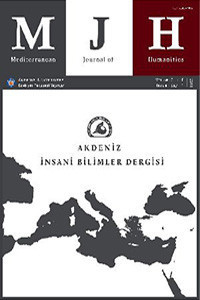Öz
In language learning and teaching, the Internet and Web 2.0 tools present resources and opportunities for both students and teachers mainly because of these tools’ communicative potentials. The purpose of this study was to investigate the use of the Internet and Web 2.0 tools among EFL instructors and examine their perceptions in respect to the use of the Internet and Web 2.0 tools for teaching purposes. Data was gathered via a questionnaire developed in cognisance of the related literature and of expert opinion. The questionnaire was distributed on-line to EFL instructors (n=112) at various universities in Turkey. The resulting data was analyzed using SPSS 20.0 and reported employing descriptive statistics, frequencies, means, percentages and standard deviations. The results showed that EFL instructors had positive attitudes towards the use of the Internet and Web 2.0 tools. Although they had positive thoughts concerning Web 2.0 tools, they were not using these tools in a sufficient manner in their teaching and were not pleased with the degree of opportunity their schools gave them to learn about the Internet.
Anahtar Kelimeler
Kaynakça
- Al-Asmari A. M. (2005). The Use of the Internet among EFL Teachers at the Colleges of Technology in Saudi Arabia. Unpublished Doctoral Dissertation. Ohio State University. Ohio (U.S.A).
- Al-Mekhlafi A. (2004). “The Internet and EFL Teaching: The Reactions of UAE Secondary School English Language Teachers”. Journal of Language and Learning 2/2 (2004) 88-113.
- Allen, M. (2008). “Promoting Critical Thinking Skills in Online Information Literacy Instruction Using a Constructivist Approach”. College & Undergraduate Libraries 15 1/2 (2008) 21-38.
- Arikan A. (2008a). “Prospective English Language Teachers’ Foreign Language Skills and the Internet”. Proceedings of E-Activity and Leading Technologies 2008, IASK – International Association for the Scientific Knowledge. Madrid, Spain.
- Arikan A. (2008b). “Using Internet Groups in the Learning of Literature”. Hacettepe University Journal of Education. 34 (2008) 19-26.
- Arkin E. (2003). Teachers' Attitudes towards Computer Technology Use in Vocabulary Instruction. Unpublished MA Dissertation. Bilkent University. Ankara 2003.
- Cahyani H. & Cahyono B. Y. (2012). “Teachers’ Attitudes and Technology Use in Indonesian EFL Classrooms”. TEFLIN Journal: A publication on the teaching and learning of English 23/2 (2012) 130-148.
- Caner M. (2009). A Study on Blended Learning Model for Teaching Practice Course in Pre-Service English Language Teacher Training Program. Unpublished Doctoral Dissertation. Anadolu University. Eskişehir 2009.
- Cephe P. T. & Balçıkanlı C. (2012). “Web 2.0 Tools in Language Learning: What Do Student Teachers Think?”. International Journal on New Trends in Education and Their Implications (IJONTE) 3/1 (2012) 1-12.
- Dawley L. (2007). The Tools for Successful Online Teaching. Hershey, PA 2007
Ayrıntılar
| Birincil Dil | Türkçe |
|---|---|
| Konular | Dil Çalışmaları (Diğer) |
| Bölüm | Araştırma Makaleleri |
| Yazarlar | |
| Yayımlanma Tarihi | 30 Haziran 2015 |
| Yayımlandığı Sayı | Yıl 2015 Cilt: 5 Sayı: 1 |
| Adres: Akdeniz İnsani Bilimler Dergisi Akdeniz Üniversitesi, Edebiyat Fakültesi 07058 Kampüs, Antalya / TÜRKİYE | E-Posta: mjh@akdeniz.edu.tr |


